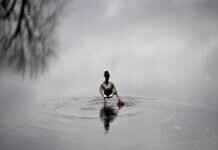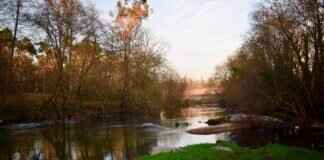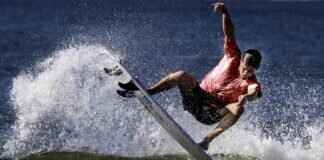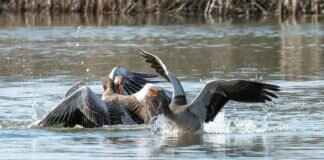In recent years, the concept of dog beds for humans has gained significant traction, offering a unique solution that caters to both pets and their owners. These innovative beds are designed to blend comfort and functionality, creating a cozy space that encourages relaxation and bonding. Imagine a sleeping arrangement where both you and your furry friend can enjoy peaceful slumber side by side, fostering a deeper emotional connection.
What Are Dog Beds for Humans?
Dog beds for humans are specially designed sleeping arrangements that provide a comfortable resting place for both dogs and their owners. These beds often feature spacious designs and soft materials, ensuring that both parties can enjoy a restful night. By promoting closeness, these beds allow for shared relaxation, which is essential for maintaining a strong bond.
Benefits of Shared Dog Beds
- Enhanced Bonding Experience: Sharing a bed can significantly strengthen the emotional connection between pets and their owners. This close proximity fosters trust and companionship.
- Psychological Benefits for Pets: Dogs that sleep near their owners often experience reduced anxiety and a greater sense of security.
- Comfort for Owners: These beds are designed to provide human comfort, ensuring that owners can enjoy restful sleep while remaining close to their pets.
Design Features to Consider
When selecting a dog bed for humans, consider essential design elements such as:
- Material Selection: Opt for durable and easy-to-clean materials that provide comfort for both pets and owners.
- Size and Style Compatibility: Choose a bed that fits your space and complements your home decor.
Maintenance and Care Tips
- Cleaning Guidelines: Regularly wash the bed and follow specific stain removal techniques to maintain hygiene.
- Regular Inspection: Check for wear and tear to ensure safety and comfort for both you and your dog.
Popular Brands and Recommendations
Some of the top brands offering dog beds for humans include:
- Brand Comparisons: Compare features, price points, and customer satisfaction to find the best options.
- User Reviews and Feedback: Read insights from fellow pet owners to gauge comfort and effectiveness.
Conclusion: The Future of Pet and Human Comfort
The trend of dog beds designed for humans is on the rise, emphasizing their role in enhancing the bond between pets and their owners. These beds not only provide a comfortable sleeping arrangement but also create a nurturing environment for shared experiences. As more pet owners recognize the benefits, the popularity of these innovative beds will likely continue to grow.

What Are Dog Beds for Humans?
Dog beds for humans represent a revolutionary concept in pet care, merging the comfort of traditional beds with the needs of our beloved furry friends. These innovative sleeping arrangements cater to both dogs and their owners, ensuring a cozy and inviting space for relaxation and bonding.
At their core, dog beds for humans are specially designed to accommodate the unique sleeping habits of dogs while providing a comfortable environment for their owners. These beds typically feature a spacious layout, allowing both the pet and the owner to snuggle together without feeling cramped. The materials used in these beds are chosen for their durability and comfort, ensuring a restful night’s sleep for everyone involved.
One of the standout features of these beds is their dual functionality. They often come with removable and washable covers, making maintenance easy and efficient. Additionally, many designs incorporate orthopedic support, which is beneficial for both pets and humans, especially those suffering from joint pain or other health issues.
Moreover, the aesthetic appeal of dog beds for humans cannot be overlooked. Available in various styles, colors, and patterns, they can seamlessly blend into any home decor, enhancing the overall ambiance of the living space. This allows pet owners to enjoy the closeness of their pets without compromising on style.
In summary, dog beds for humans are more than just a sleeping solution; they are a way to strengthen the bond between pets and their owners. By providing a comfortable, shared space for relaxation, these beds promote a nurturing environment that benefits both parties. Whether you’re looking to enhance your pet’s comfort or simply enjoy their company during sleep, investing in a dog bed designed for humans is a choice worth considering.
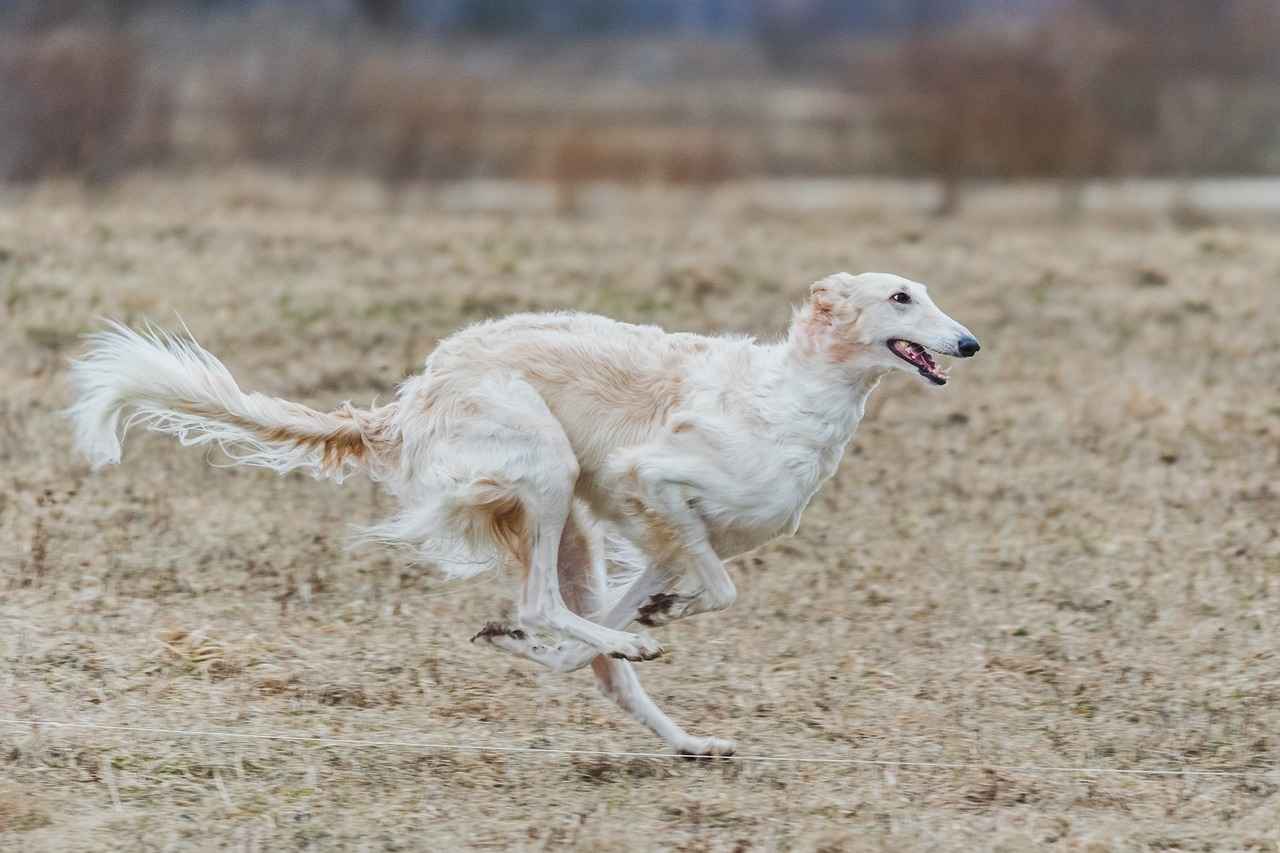
Benefits of Shared Dog Beds
In recent years, the concept of shared dog beds has gained popularity among pet owners, and for good reason. These specially designed beds not only cater to the comfort of our furry friends but also enhance the overall experience for their human companions. Here are some key advantages of using dog beds designed for humans:
- Improved Bonding: Sharing a bed with your dog fosters a deeper emotional connection. This close proximity allows for intimacy and trust to flourish, strengthening the bond between pet and owner.
- Shared Warmth: Dogs are naturally warm creatures, and snuggling up together can provide mutual warmth during colder nights. This shared heat not only keeps both parties comfortable but also promotes a sense of security.
- Cozy Environment: A dog bed designed for humans creates a comfortable and inviting space where both pets and owners can relax. This cozy environment encourages rest and rejuvenation, making it easier for both to unwind after a long day.
- Reduced Anxiety: For dogs, sleeping close to their owners can significantly reduce feelings of anxiety. The presence of their human can provide a sense of safety, leading to a more peaceful sleep experience for both.
- Convenience: Having a shared bed means you can easily monitor your dog’s behavior while sleeping. This is particularly beneficial for puppies or older dogs who may need extra attention during the night.
Ultimately, investing in a dog bed designed for both humans and dogs can enhance the quality of life for both pets and their owners. The emotional and physical benefits of sharing a sleeping space are profound, making it a worthwhile consideration for any pet lover.
Enhanced Bonding Experience
Sharing a bed with your dog is more than just a cozy arrangement; it is a transformative experience that can significantly enhance the emotional bond between you and your furry companion. This practice fosters a sense of trust and companionship, creating a nurturing environment that benefits both parties.
When dogs sleep next to their owners, they often feel a profound sense of security. This closeness helps to alleviate feelings of anxiety and loneliness, which can be particularly beneficial for dogs that may struggle with separation issues. The physical presence of their owner provides a calming influence, allowing dogs to relax and sleep more soundly. As they drift off to sleep, the rhythmic sound of their owner’s heartbeat can be incredibly soothing, reinforcing their sense of safety.
Moreover, this shared sleeping arrangement encourages a deeper emotional connection. Dogs are naturally social animals, and by sharing a bed, they are able to engage in a form of bonding that mirrors their instinctual pack behavior. This not only strengthens the relationship but also enhances the dog’s overall well-being. Over time, the mutual trust developed through this closeness can lead to improved behavior, as dogs feel more secure and less prone to stress-related issues.
Additionally, sharing a bed can create a cozy and intimate atmosphere that fosters communication and affection. Simple gestures, such as petting or cuddling, become more accessible when both the owner and the dog are in close proximity. This physical touch can reinforce the bond, making both parties feel more loved and connected.
In conclusion, the act of sharing a bed with your dog is a powerful way to enhance your bond. It not only provides emotional reassurance for your pet but also cultivates a nurturing environment that promotes trust and companionship. If you’re considering this arrangement, embrace the opportunity to deepen your relationship with your canine friend.
Psychological Benefits for Pets
Sharing a bed with their owners offers dogs numerous psychological advantages that can significantly improve their overall well-being. One of the most notable benefits is the reduction of anxiety. Dogs are social animals, and they thrive on the presence of their human companions. When they sleep beside their owners, they often feel a sense of safety and comfort, which can alleviate feelings of stress and fear.
Additionally, the act of sharing a bed fosters a strong sense of security for dogs. This security is rooted in their natural instincts; being close to their owner mimics the pack mentality they are accustomed to in the wild. In this shared space, dogs can relax more deeply, knowing that their trusted human is nearby to protect them from potential threats.
Moreover, the warmth generated from sleeping together provides not just physical comfort but also emotional reassurance. The closeness creates a soothing environment that can help dogs settle into a deeper sleep, which is essential for their mental health. Studies have shown that adequate sleep is crucial for reducing stress levels and improving mood in pets.
Furthermore, the bond created through this shared experience can enhance the emotional connection between the dog and the owner. This connection is vital for a dog’s mental health, as it promotes feelings of love and belonging. Dogs that feel loved and secure are less likely to exhibit behavioral issues such as excessive barking or destructive tendencies.
In summary, the psychological benefits of sharing a bed with their owners extend beyond mere comfort. They encompass a holistic approach to a dog’s mental well-being, fostering trust, reducing anxiety, and enhancing the overall bond between pets and their humans.
Comfort for Owners
When it comes to ensuring a good night’s sleep, comfort is paramount for both humans and their furry companions. Dog beds designed for humans offer a unique solution that caters to the needs of both parties, allowing owners to rest easy while still being close to their pets. These innovative beds are crafted with a variety of features that prioritize comfort and support, creating an ideal sleeping environment.
One of the key aspects of these beds is their ergonomic design. They often incorporate memory foam or high-density cushioning, which contours to the body, providing excellent support for the spine and joints. This is particularly beneficial for owners who may suffer from back pain or discomfort. Additionally, many dog beds for humans come with adjustable features, allowing users to customize their sleeping position for maximum comfort.
Moreover, the materials used in these beds are selected not just for comfort, but also for temperature regulation. Breathable fabrics help maintain a comfortable sleeping temperature, ensuring that both the owner and the dog do not overheat during the night. This is especially important for those living in warmer climates or for dogs that may be prone to overheating.
Another significant advantage of these shared sleeping arrangements is the emotional comfort they provide. Being close to their pets can alleviate stress and anxiety for owners, promoting a deeper sense of relaxation. The presence of a beloved pet can create a sense of security, making it easier for owners to drift off to sleep.
In summary, dog beds designed for humans not only prioritize physical comfort but also enhance the emotional bond between pets and their owners. By ensuring a restful sleep environment, these beds allow for a peaceful night’s rest while still keeping furry friends close by, thus fostering a nurturing atmosphere for both.
Design Features to Consider
When selecting a dog bed designed for humans, it is crucial to focus on several key design features that ensure comfort and functionality for both pets and their owners. Here are the essential elements to consider:
- Materials: The choice of materials is paramount. Look for beds made from durable fabrics that can withstand wear and tear from pets. Additionally, materials should be easy to clean, such as machine-washable covers or water-resistant fabrics, allowing for hassle-free maintenance.
- Size: Size is another critical factor. Ensure that the bed accommodates both the pet and the owner comfortably. Consider the dimensions of your space and choose a bed that provides enough room for both parties to stretch out without feeling cramped.
- Style: Aesthetics matter, especially if the bed will be in a shared living space. Look for designs that complement your home decor. Whether you prefer a modern minimalist style or a cozy rustic look, there are options available that match various interior styles.
- Support and Comfort: The bed’s construction should prioritize support and comfort. Look for options with memory foam or orthopedic support to ensure a restful sleep for both you and your dog. This is particularly important for older pets or those with joint issues.
- Temperature Regulation: Consider beds that offer features for temperature regulation, such as breathable fabrics or cooling gel layers. This is especially beneficial in warmer climates or for pets that tend to overheat.
By carefully evaluating these design features, pet owners can choose the ideal dog bed that fosters a comfortable and enjoyable sleeping experience for both themselves and their furry companions.
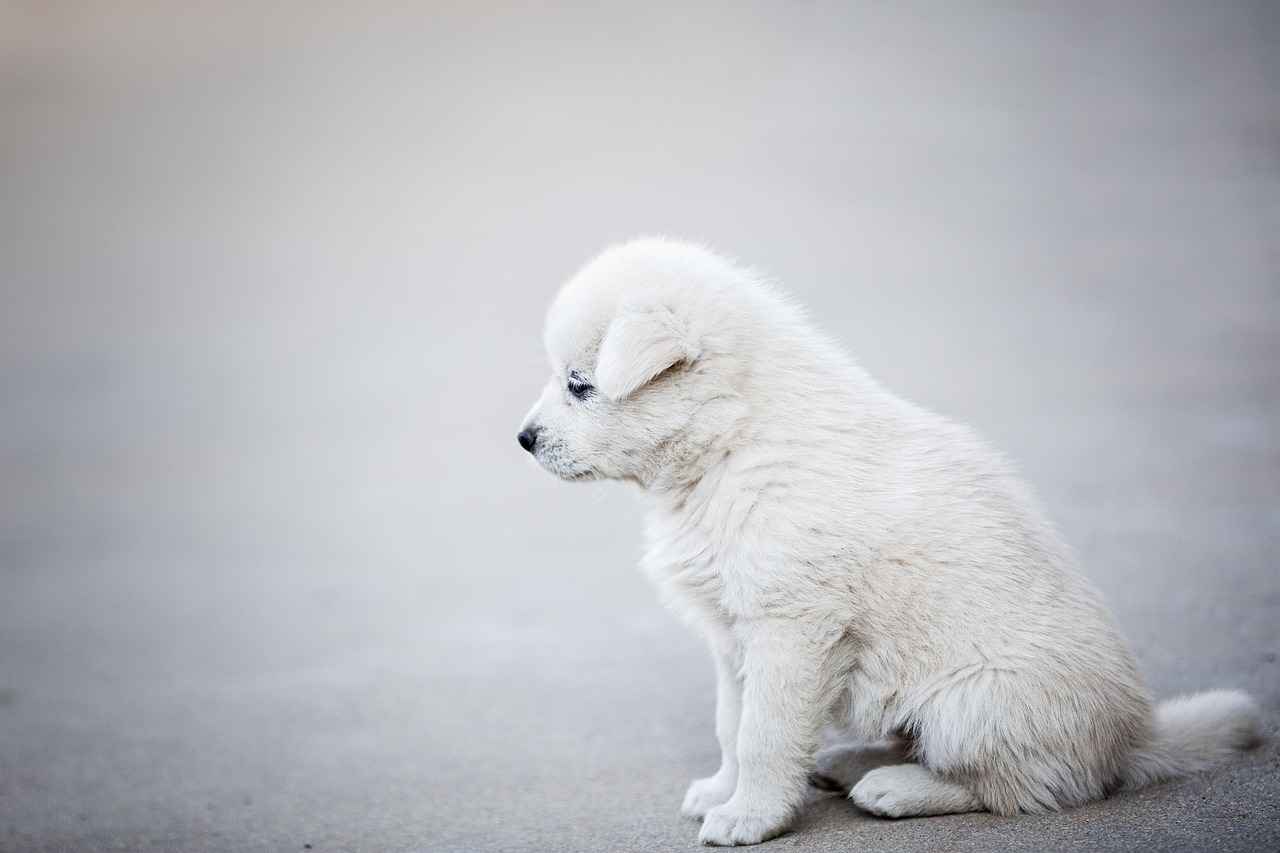
Choosing the Right Size and Style
When it comes to selecting the right size and style of dog bed for humans, there are several key factors to consider that ensure comfort for both the pet and the owner. The goal is to create a harmonious space where both parties can relax and bond.
Understanding Your Space
- Room Dimensions: Measure the area where the dog bed will be placed. Ensure there is enough space for both the bed and any additional furniture.
- Placement: Consider the best location for the bed, whether it be in the bedroom, living room, or another comfortable area.
Choosing the Right Size
- Dog Size: Take into account your dog’s breed and size. A bed that is too small can lead to discomfort, while a bed that is too large may not provide the necessary sense of security.
- Owner Comfort: Ensure the bed accommodates the owner’s size as well, allowing for a comfortable sleeping position without feeling cramped.
Style Considerations
- Aesthetic Appeal: Select a design that complements your home decor. This could range from modern and sleek to cozy and rustic.
- Functionality: Look for features such as removable covers for easy cleaning, waterproof materials, and orthopedic support for added comfort.
Material Matters
- Durability: Choose high-quality materials that withstand wear and tear from both pets and humans.
- Comfort: Soft, breathable fabrics are essential for a cozy sleeping experience.
By carefully considering these factors, you can select a dog bed that not only meets the needs of your furry friend but also enhances your own comfort, creating a perfect space for relaxation and bonding.
Material Selection
is a crucial aspect when choosing dog beds designed for humans. The right materials not only enhance the overall experience but also ensure durability, ease of cleaning, and comfort for both pets and their owners.
When considering materials, it’s important to look for options that can withstand daily wear and tear. Durability is key, especially for active dogs who may scratch or chew. Here are some popular materials used in dog beds for humans:
- Memory Foam: This material provides excellent support and comfort, contouring to the body shape of both the dog and the owner. It helps alleviate pressure points, making it ideal for those with joint pain.
- Orthopedic Foam: Similar to memory foam, orthopedic foam is designed to offer enhanced support, particularly beneficial for older dogs or those with arthritis.
- Water-Resistant Fabrics: Materials like nylon or polyester can repel moisture, making them easier to clean and maintain. These fabrics are ideal for homes where pets may have accidents or enjoy splashing around.
- Machine-Washable Covers: To ensure ease of cleaning, many dog beds come with removable covers that can be machine washed. This feature is essential for maintaining hygiene and freshness.
- Eco-Friendly Materials: For environmentally conscious pet owners, beds made from recycled or sustainable materials are increasingly available. These options are not only good for the planet but also safe for pets.
In addition to durability, ease of cleaning is another significant factor. Dog beds can accumulate dirt, hair, and odors over time. Therefore, selecting materials that are stain-resistant and easy to wipe down can save time and effort in maintenance.
Lastly, comfort cannot be overlooked. The materials chosen should provide a cozy and inviting space for both the pet and the owner. Consideration of texture, breathability, and insulation can make a significant difference in the overall experience.
In summary, when selecting a dog bed for humans, prioritize materials that offer durability, ease of cleaning, and comfort. This thoughtful approach will enhance the shared sleeping experience, fostering a deeper bond between pets and their owners.
Style Compatibility
When it comes to selecting a dog bed that not only serves your pet’s needs but also complements your home decor, style compatibility is crucial. A well-chosen dog bed can enhance the aesthetic of your living space while providing a functional and comfortable area for your furry friend.
Consider Your Home’s Color Palette: Start by assessing the colors in your home. Choose a dog bed that features shades that either match or harmonize with your existing decor. For instance, if your living room has a neutral palette, a bed in soft grays or beiges can blend seamlessly. Conversely, a vibrant bed can serve as a statement piece in a more colorful environment.
Material Matters: The materials used in the dog bed can also impact its style. For a modern look, consider beds made from sleek fabrics like canvas or faux leather. If your decor leans more towards a rustic style, opt for beds made from natural materials such as cotton or jute. Each material offers a different vibe, so choose one that resonates with your home’s overall aesthetic.
Shape and Design: The shape of the dog bed is another important factor. Traditional rectangular beds work well in classic settings, while round or uniquely shaped beds can add a contemporary touch. Additionally, look for beds that incorporate unique design elements, such as tufted cushions or stylish patterns, to enhance visual appeal.
Function Meets Style: Ultimately, the best dog bed is one that combines style with practicality. Look for beds that are easy to clean, durable, and provide the necessary comfort for your pet. Many modern designs come with removable covers, making maintenance a breeze without sacrificing aesthetics.
In conclusion, choosing a dog bed that complements your home decor while serving its functional purpose can significantly enhance both your living space and your pet’s comfort. By considering color, material, shape, and functionality, you can find the perfect bed that meets both your needs and those of your beloved pet.

Maintenance and Care Tips
are essential for ensuring that dog beds designed for humans remain comfortable, hygienic, and durable for both pets and their owners. By following these guidelines, you can enhance the longevity of your shared sleeping space while promoting a healthy environment.
- Regular Cleaning: It is crucial to maintain cleanliness in shared dog beds. Wash removable covers regularly according to the manufacturer’s instructions, typically every 1-2 weeks. For non-removable covers, spot cleaning with pet-safe detergents can help remove stains and odors.
- Vacuuming: Use a vacuum cleaner with a pet hair attachment to remove hair, dirt, and dander from the bed. This should be done weekly to prevent the buildup of allergens.
- Odor Control: To keep the bed smelling fresh, sprinkle baking soda on the surface and let it sit for a few hours before vacuuming. This natural deodorizer helps absorb odors without harsh chemicals.
Regular Inspection: Check the bed frequently for signs of wear and tear. Look for:
- Frayed seams: These can lead to further damage and discomfort.
- Flattened padding: If the cushioning has lost its loft, it may be time to replace the bed to ensure proper support for both you and your dog.
- Stains or odors: Address any issues promptly to maintain hygiene.
Storage Tips: If you need to store the dog bed temporarily, make sure it is clean and dry. Use a breathable storage bag to prevent moisture buildup and mold growth.
By implementing these , you can ensure a comfortable and healthy sleeping environment for both you and your furry friend. Regular upkeep not only enhances the longevity of the bed but also promotes a bond built on comfort and care.
Cleaning Guidelines
Keeping your dog’s bed clean is essential for their health and comfort, as well as for maintaining a pleasant living environment. Here are some best practices for cleaning and maintaining your dog bed, ensuring that it remains a safe and inviting space for your furry friend.
- Check the Label: Always start by reading the care label on your dog bed. This will provide specific washing instructions based on the materials used.
- Use a Gentle Cycle: When washing, opt for a gentle cycle with cold or warm water to avoid damaging the bed’s fabric.
- Detergent Choice: Choose a mild detergent that is free from harsh chemicals or fragrances, as these can irritate your dog’s skin.
- Drying: Air drying is preferable, but if you use a dryer, select a low heat setting to prevent shrinkage or damage.
Accidents happen, and knowing how to effectively remove stains can prolong the life of your dog’s bed:
- Immediate Action: Address stains as soon as they occur. Blot the area with a clean cloth to absorb excess liquid without rubbing it in.
- Homemade Solutions: A mixture of white vinegar and water can be effective for removing odors and stains. Apply the solution, let it sit for a few minutes, and then blot it dry.
- Enzyme Cleaners: For tougher stains, consider using an enzyme-based cleaner specifically designed for pet messes, as these can break down organic stains effectively.
In addition to washing, regular maintenance is crucial:
- Vacuuming: Regularly vacuum the dog bed to remove hair, dirt, and dander, keeping it fresh and clean.
- Inspect for Damage: Routinely check the bed for any signs of wear and tear, such as frayed seams or holes, which can harbor bacteria.
By following these , you can ensure that your dog’s bed remains a safe, clean, and comfortable place for them to relax and sleep.
Regular Inspection
of dog beds is crucial for ensuring both safety and comfort for you and your furry friend. Over time, wear and tear can occur, leading to potential hazards that could affect your dog’s well-being. By regularly checking the condition of the bed, you can identify any issues early and take action to maintain a safe sleeping environment.
Here are some key aspects to consider during your inspections:
- Check for Damage: Look for any signs of tears, fraying, or loose seams. Damaged beds can pose a risk of injury to your dog, as they may snag or cause discomfort while sleeping.
- Inspect the Fill Material: If your dog bed has stuffing, ensure it hasn’t clumped or flattened over time. A bed that lacks proper support can lead to discomfort and poor sleep quality for your pet.
- Odor and Stains: Regularly assess the bed for any unpleasant odors or stains. These can be indicators of dirt buildup or hygiene issues that may need addressing through cleaning or replacement.
- Stability and Support: Ensure that the bed remains stable and supportive. A wobbly or uneven bed can lead to discomfort and may deter your dog from using it.
Incorporating these inspection practices into your routine not only enhances the longevity of the bed but also contributes to a healthier sleeping environment for your dog. Remember, a well-maintained bed promotes better sleep, which is essential for your dog’s overall health and happiness.
In conclusion, regular inspections of your dog bed are vital for ensuring safety and comfort. By being proactive, you can prevent minor issues from escalating into major problems, ultimately enhancing the bond between you and your pet.

Popular Brands and Recommendations
When it comes to finding the perfect dog bed for humans, several brands stand out for their quality, comfort, and user satisfaction. Below, we explore some of the top brands that offer innovative solutions for pet owners looking to share their sleeping space with their furry friends.
- PetFusion: Known for its high-quality materials and ergonomic design, PetFusion offers a range of dog beds that cater to both pets and humans. Their beds often feature memory foam and are designed for optimal support.
- BarkBox: This brand combines fun and functionality, providing stylish dog beds that fit seamlessly into home decor. BarkBox beds are often praised for their durability and ease of cleaning.
- Big Barker: Big Barker specializes in large dog beds, ideal for bigger breeds. Their beds are constructed with high-density foam and are designed to support the weight of larger dogs while still providing comfort for their owners.
- PetFusion Ultimate Dog Bed: This bed is a favorite among pet owners for its durability and comfort. It features a water-resistant liner and a removable cover that is machine washable, making maintenance a breeze.
- Furhaven: Furhaven offers a variety of styles and sizes, ensuring that there’s a perfect fit for every pet and owner. Their beds often include features like orthopedic support and plush sleeping surfaces.
When selecting a dog bed for humans, it’s essential to consider user reviews. Many pet owners report that beds from brands like PetFusion and Big Barker not only provide comfort but also enhance the bonding experience with their pets. Feedback highlights aspects such as:
- Durability over time
- Ease of cleaning
- Comfort level for both pets and their owners
Overall, choosing a dog bed designed for humans can significantly improve the sleeping experience for both pets and their owners. By considering the recommendations and user feedback, you can find the perfect bed that meets your needs while ensuring a cozy space for your furry companion.
Brand Comparisons
When it comes to selecting the ideal dog bed for humans, comparing various brands is essential. This process involves examining key factors such as features, price points, and customer satisfaction. By doing so, you can make an informed decision that best suits your needs and those of your furry friend.
Features are a critical aspect to consider. Some brands offer unique designs that cater specifically to the comfort of both pets and owners. For instance, look for beds that include:
- Memory foam for optimal support
- Water-resistant covers for easy maintenance
- Adjustable sizes to accommodate different dog breeds
- Eco-friendly materials for sustainability
Next, price points can vary significantly across brands. It’s important to find a balance between affordability and quality. While some premium brands might charge more, they often provide enhanced durability and comfort. Compare the following price ranges:
| Brand | Price Range | Key Features |
|---|---|---|
| Brand A | $100 – $150 | Memory foam, waterproof cover |
| Brand B | $50 – $100 | Standard cushioning, easy to clean |
| Brand C | $150 – $200 | Eco-friendly, adjustable size |
Finally, customer satisfaction is a vital indicator of a product’s quality. Reading user reviews can provide insights into real-life experiences, helping you gauge the comfort and durability of various options. Look for brands with high ratings and positive feedback regarding:
- Comfort for both pets and owners
- Durability over time
- Ease of cleaning and maintenance
In conclusion, by carefully comparing features, price points, and customer satisfaction across different brands, you can find the best dog bed that meets the needs of both you and your beloved pet.
User Reviews and Feedback
When considering a dog bed designed for both humans and their furry companions, it is essential to gather insights from fellow pet owners. Their experiences can provide valuable information about the effectiveness and comfort of various models available in the market.
Many pet owners emphasize the importance of comfort and durability in their reviews. A common sentiment is that a good dog bed should not only accommodate the pet’s needs but also ensure that the owner feels comfortable while sharing the space. For instance, several users have reported that beds made from memory foam offer excellent support, reducing pressure points for both humans and dogs during sleep.
- Effectiveness: Pet owners often comment on how well their dogs adapt to these beds. Many dogs, when given a comfortable shared space, exhibit improved sleeping patterns and reduced anxiety.
- Comfort Levels: Reviews frequently highlight the importance of materials. Beds with breathable fabrics and hypoallergenic properties are particularly favored, as they cater to both pets and humans with sensitive skin.
- Size and Space: Feedback often includes insights on sizing. Owners recommend choosing a bed that allows enough room for both the pet and the owner to move comfortably without feeling cramped.
Additionally, users frequently share their thoughts on maintenance. Many prefer beds with removable, washable covers, making it easier to keep the sleeping area clean and hygienic. This feature is particularly important for pet owners who want to maintain a fresh environment while enjoying the benefits of shared sleeping arrangements.
In conclusion, gathering user reviews and feedback is crucial when selecting a dog bed designed for humans. The insights from fellow pet owners not only inform potential buyers about the effectiveness of various products but also help in making an informed decision that enhances the comfort and bonding experience for both pets and their owners.

Conclusion: The Future of Pet and Human Comfort
As the bond between pets and their owners continues to deepen, the emergence of dog beds for humans marks a significant trend in the pet industry. These innovative sleeping arrangements are not just about comfort; they symbolize a growing recognition of the emotional connections shared between dogs and their owners. By providing a cozy space that accommodates both, these beds enhance the shared experience of relaxation and companionship.
Dog beds designed for humans often feature a range of unique designs that cater to the needs of both parties. They are typically larger than traditional dog beds, allowing ample space for both the pet and the owner to sprawl out comfortably. This design encourages closeness, making it easier for owners to bond with their pets during sleep. The materials used are chosen for their durability and comfort, ensuring that both humans and dogs enjoy a restful night.
One of the most significant benefits of these beds is the enhanced bonding experience. Sharing a bed fosters a sense of security and trust, which is vital for a dog’s emotional well-being. It can help reduce anxiety in pets, as they feel more secure being close to their owners. For humans, the comfort of having their furry friends nearby can lead to a more fulfilling and peaceful sleep.
Moreover, the selection of the right size and style is crucial. Owners must consider their living space and personal aesthetic when choosing a dog bed that fits seamlessly into their home. This not only enhances the decor but also ensures that both the pet and owner feel comfortable.
As we look to the future, the trend of dog beds for humans is likely to grow. They represent a shift towards a more inclusive approach to pet care, emphasizing the importance of shared comfort and emotional connection. By investing in these beds, owners are not just providing a place for their pets to sleep; they are nurturing a bond that enhances the quality of life for both.




